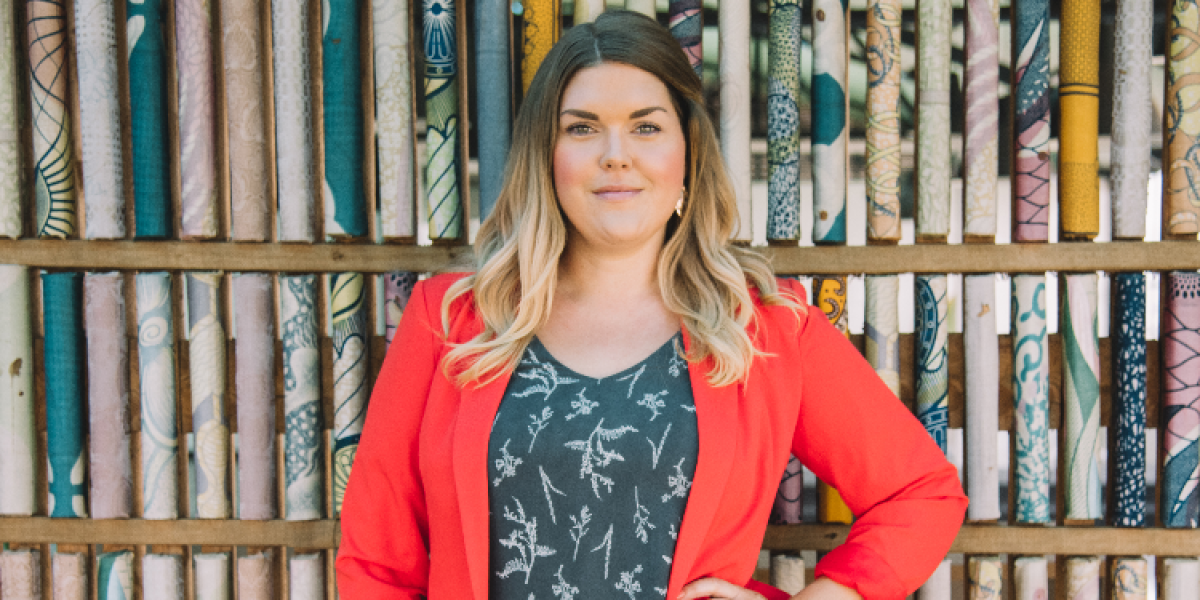
This year’s International Women’s Day theme is Choose To Challenge, inviting observation, critical thinking, reflection, and communication to solve problems and bring change. To this end, let’s all take some time today to think about how we will help forge a gender-equal world, not just today but every day.
At Expat.com we strive for diversity, unbiased information, and a justice world for all human beings. We believe that the more we come out of our comfort zones and we travel, the closer we get to our goal. This article is about an amazing expat woman who is an inspiration for all of us.
Katie Carlson: International gender specialist and feminist activist
Katie first arrived in Kigali, Rwanda, in 2011 for her Master's thesis field work related to gender and women in the parliament. She liked her time in Rwanda, and drawn by the country's gender narrative, she moved back in May 2012 — this time for work. Nine years later, Katie still appreciates Rwanda's mild weather and gentle seasonal changes, and the pace of life, which is unique to eastern Africa, and quite the opposite of North America's lifestyle.
Soon after her settlement, Katie launched gender workshops with teenagers, exploring different topics and curriculums. What started as a three-month project has progressed to Paper Crown, a registered Rwandan non-profit. Katie says: “I founded Paper Crown in 2014, but when I moved to Africa, I never had the intention to start an NGO. I wanted to change girls' and boys' gender perception at the grassroots level, but at the time, there wasn't an avenue for that. So, I started exploring on my own. After some workshops, the girls' enthusiasm and positive feedback showed me that there's a need for what we do. I developed Paper Crown out of a passion for equality and transforming gender relations between men and women, and people of all gender expressions.”
Katie's sessions are thought-provoking and interactive. She and her Rwandan team of men and women gender trainers whom she has coached, sit down with communities and invite them to think about why they believe the things they believe, how are these beliefs harmful, and encourage them to consider what they might want to do differently. “We aren't just looking at the symptoms of gender inequality but at the root drivers of masculinity, femininity, social belonging and fitting in, and socioeconomic power dynamics,” Katie explains.
Katie emphasises that she didn't come to Rwanda to change the people and teach them the Western way of doing things. “I came to Rwanda to learn and grow as a person and professional. At the same time, my luck of being from Canada and having received good education has given me the space to think critically and ask questions about the world. From a young age, I pursued social justice and spoke out against gender inequality and violence, and the gender norms we have created as humans. These are the things I bring to the table when I do my work in Rwanda. But I don't think that as an expat you can bring value to your host country unless you are committed to immerse yourself in the different customs, work closely with the people, and learn from them.”
But “how receptive is Rwanda to the transformation of gender norms?” I ask. Katie says: “The national government takes a proactive approach to gender equality and normalises women in leadership. Rwanda has quotas for women in government when other countries are nervous about this system. Rwanda is unique because there is a strong political will around gender equality, violence prevention, and women's economic independence. However, there's still a big gap between that and the reality in individual households. Freedom of movement, decision making, control over financial resources and other day-to-day equality matters aren't there yet. And that's what I am tackling with my consultancy work in and outside Paper Crown — to stress the importance and need of a deep intentional transformation in relationships, households, and communities.”
Katie grew up in an openly anti-racist household, so she is very aware of her racial minority in Rwanda and the privilege of being a white person as a result of systemic racism. “I don't think a white person should move to a country that is primarily with people of colour if they are not willing to think critically about power dynamics and be ready to feel uncomfortable, be challenged, and have their historical power and access to wealth and opportunities called out when necessary.” About her Canadian identity, Katie says: “I am critical of claiming nationhood because of a place in the universe that I happened to be born in. I think of the world as my home, and I don't want to live in the bubble I grew up in. The most important thing to me about honouring my identities is to be true to myself, my values, and my beliefs as a feminist and social justice activist regardless of where I am.
Katie invites expat women to break down the stereotypes of what others think we should be, and feel free to be unique. “Don't feel you have to fade into the background. I think for women, it's always inspiring to see other women doing amazing things. And remember that if you have the ability and freedom to travel and move to different places, you are privileged.”
Katie would rather see women being treated well and with the same respect, access to opportunities, self-esteem, and safety that men enjoy, every day than having one day of the year cherishing how great women are. “But until we get to that point, we should never stop that work. I hope we can move beyond International Women's Day to women feeling celebrated and valued for all the amazing things they do, every day. International Women's Day makes me think of all the work we have left to do. I think this day is a good time to reflect on ourselves and the women we know, and what they mean to us,” she concludes.



















